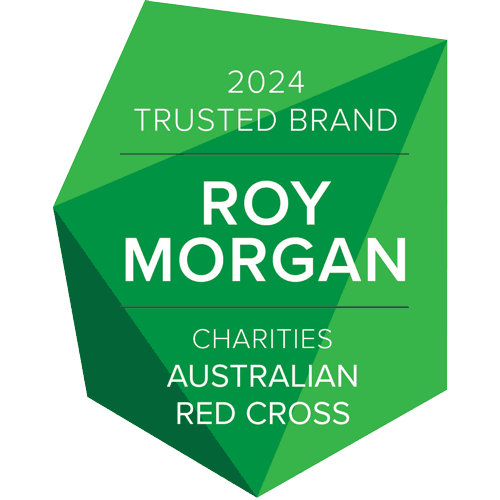Why has the world failed Syria?
The Australian aid worker who heads up the International Federation of the Red Cross and Red Crescent operations in Syria reflects on a brutal eight-year long war.
Fancy footwork by 12-year-old Youssef, makes everyone smile at our health clinic in Daraa, southern Syria. Youssef dreams of becoming a professional football player like his idol, Lionel Messi. His mother is sure he will win his fight with cancer.

Our volunteers give Youssef a new football signed by Syrian footballers. It means the world to Youssef. All he can remember is war. He has gone without the basics that Australian children take for granted. Youssef is staying positive. Every child deserves much better.
The last battles may be underway in Syria’s north, yet the war is far from over for millions of people. I see so many living life to the fullest, despite having families torn apart.
In eight years of war, the world has failed to protect the people of Syria. While there are no simple solutions, we must do more to support the people of Syria to fix a mess that has been forced upon them.
Could more have been done to find a political solution and stem one of the world’s biggest humanitarian crises? Do all governments share a collective responsibility to find lasting solutions? The answer to these questions must be a resounding yes.
In Brussels later this month, governments of the world, the European Union, the United Nations and international humanitarian organisations will meet to thrash out solutions on Syria’s future.
Australia and many other countries have made very welcome contributions to aid efforts in Syria. Generous Australians have helped fund mobile health clinics saving thousands of lives. But there is a massive funding shortfall.
There must be an end to the fighting and a lasting peace. Alongside long-term political solutions there needs to be a clear program and timelines for restoring dignity and the essentials needed in daily life for every single Syrian woman, man and child, like Youssef.
The war in Syria has raged for too long. It is unacceptable that the people of Syria have endured brutal fighting longer than the world wars. Just as the world wars defined the first half of the 20th century, so to the humanitarian catastrophes in Syria and Yemen threaten to shape this era.
Let’s make no mistake, much of Syria lies in ruins. Yet it can and must be rebuilt and rehabilitated. The sooner work begins; the quicker people can start the long road to healing the emotional wounds. There has been too much suffering. It will be felt for a lifetime and beyond.

We all have a responsibility to help the people of Syria stand again with pride.
It is heartbreaking for Syrians to see their cultural heart ripped apart. Most world heritage sites have been destroyed, including the ancient cities of Aleppo and Palmyra. Cultural treasures, thousands of years old, have been plundered and ransacked. Cultural officials say they will restore what they can. However, some are lost forever.
I’ve seen so many people survive with incredible ingenuity as their neighbourhoods have been bombed to pieces. Makeshift pipes repair destroyed water mains. Special community volunteers unblock drains preventing toxic sewer floods.
Rubble is cleared through rain and snow, often at night, so that roads can ferry the wounded and essential supplies. Hospitals and health clinics are regularly relocated to avoid being targeted and destroyed.
This terrible war started with a flashpoint mid-March 2011. In those eight years, hundreds of thousands have died and 73 Red Crescent staff and volunteers have been killed while delivering humanitarian aid.
Red Cross working together with Syrian Red Crescent are helping 15 million Syrians survive, restoring access to clean water inside the country. Millions have fled overseas in fear of death or persecution, leaving a decimated population of 18 million.
More than a third of those who remain have relocated their families many times to avoid the bombs and gunfire. Each time seeking peace, hope and a new beginning. Each time searching for a job to afford food and a school where eager children can learn and play.

In Rukban camp near the Syrian-Jordan border, we meet 10-year-old Reza. Wearing a superman t-shirt, his simple wish is to go to school to learn. He would like to inspire other children to be determined to get through these hard times. Reza is a little hero.
Every day I marvel at the remarkable strength of so many people who have lost so much, yet who make do with so little. We owe all Syrians a much brighter future.
Paula Fitzgerald is an Australian who is Head of the International Federation of the Red Cross and Red Crescent Operations in Syria.
This article first appeared in Rendezview, the online opinion site of the Herald sun, Daily Telegraph and other News Corp news sites nationwide.

Charity donations of $2 or more to Australian Red Cross may be tax deductible in Australia. Site protected by Google Invisible reCAPTCHA. © Australian Red Cross 2025. ABN 50 169 561 394
